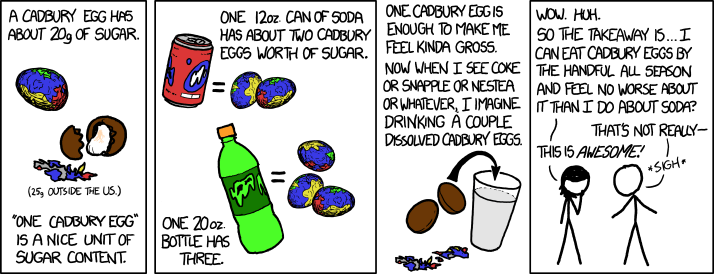In a first, Google has released data on how much energy an AI prompt uses
-
This post did not contain any content.
-
This post did not contain any content.
Nice share! Mistral also shared data about one of its largest model (not the one that answer in LeChat, since that one is Medium, a smaller model, that I guess has smaller energetic requirements)
-
This post did not contain any content.
In total, the median prompt—one that falls in the middle of the range of energy demand—consumes 0.24 watt-hours of electricity, the equivalent of running a standard microwave for about one second. The company also provided average estimates for the water consumption and carbon emissions associated with a text prompt to Gemini.
-
In total, the median prompt—one that falls in the middle of the range of energy demand—consumes 0.24 watt-hours of electricity, the equivalent of running a standard microwave for about one second. The company also provided average estimates for the water consumption and carbon emissions associated with a text prompt to Gemini.
There are zero downsides when mentally associating an energy hog with "1 second of use time of the device that is routinely used for minutes at a time."
-
This post did not contain any content.
So as thought virtually no impact. AI is here and not leaving. It will outlast humans on earth probably.
-
This post did not contain any content.
Let’s see OpenAI’s numbers
-
In total, the median prompt—one that falls in the middle of the range of energy demand—consumes 0.24 watt-hours of electricity, the equivalent of running a standard microwave for about one second. The company also provided average estimates for the water consumption and carbon emissions associated with a text prompt to Gemini.
The article also mentions each enquiry also evaporates 0.26 of a milliliter of water... or "about five drops".
-
This post did not contain any content.
Cool, now how much power was consumed before even a single prompt was ran in training that model, and how much power is consumed on an ongoing basis adding new data to those AI models even without user prompts. Also how much power was consumed with each query before AI was shoved down our throats, and how many prompts does an average user make per day?
-
There are zero downsides when mentally associating an energy hog with "1 second of use time of the device that is routinely used for minutes at a time."
With regard to sugar: when I started counting calories I discovered that the actual amounts of calories in certain foods were not what I intuitively assumed. Some foods turned out to be much less unhealthy than I thought. For example, I can eat almost three pints of ice cream a day and not gain weight (as long as I don't eat anything else). So sometimes instead of eating a normal dinner, I want to eat a whole pint of ice cream and I can do so guilt-free.
Likewise, I use both AI and a microwave, my energy use from AI in a day is apparently less than the energy I use to reheat a cup of tea, so the conclusion that I can use AI however much I want to without significantly affecting my environmental impact is the correct one.
-
Cool, now how much power was consumed before even a single prompt was ran in training that model, and how much power is consumed on an ongoing basis adding new data to those AI models even without user prompts. Also how much power was consumed with each query before AI was shoved down our throats, and how many prompts does an average user make per day?
I did some quick math with metas llama model and the training cost was about a flight to Europe worth of energy, not a lot when you take in the amount of people that use it compared to the flight.
Whatever you're imagining as the impact, it's probably a lot less. AI is much closer to video games then things that are actually a problem for the environment like cars, planes, deep sea fishing, mining, etc. The impact is virtually zero if we had a proper grid based on renewable.
-
In total, the median prompt—one that falls in the middle of the range of energy demand—consumes 0.24 watt-hours of electricity, the equivalent of running a standard microwave for about one second. The company also provided average estimates for the water consumption and carbon emissions associated with a text prompt to Gemini.
This doesn't really track with companies commissioning power plants to support power usage of AI training demand
-
This post did not contain any content.
This feels like PR bullshit to make people feel like AI isn't all that bad. Assuming what they're releasing is even true. Not like cigarette, oil, or sugar companies ever lied or anything and put out false studies and misleading data.
However, there are still details that the company isn’t sharing in this report. One major question mark is the total number of queries that Gemini gets each day, which would allow estimates of the AI tool’s total energy demand.
Why wouldn't they release this. Even if each query uses minimal energy, but there are countless of them a day, it would mean a huge use of energy.
Which is probably what's happening and why they're not releasing that number.
-
I did some quick math with metas llama model and the training cost was about a flight to Europe worth of energy, not a lot when you take in the amount of people that use it compared to the flight.
Whatever you're imagining as the impact, it's probably a lot less. AI is much closer to video games then things that are actually a problem for the environment like cars, planes, deep sea fishing, mining, etc. The impact is virtually zero if we had a proper grid based on renewable.
If their energy consumption actually was so small, why are they seeking to use nuclear reactors to power data centres now?
-
I did some quick math with metas llama model and the training cost was about a flight to Europe worth of energy, not a lot when you take in the amount of people that use it compared to the flight.
Whatever you're imagining as the impact, it's probably a lot less. AI is much closer to video games then things that are actually a problem for the environment like cars, planes, deep sea fishing, mining, etc. The impact is virtually zero if we had a proper grid based on renewable.
I usually liken it to video games, ya. Is it worse that nothing? Sure, but that flight or road trip, etc, is a bigger concern. Not to mention even before AI we've had industrial usage of energy and water usage that isn't sustainable... almonds in CA alone are a bigger problem than AI, for instance.
Not that I'm pro-AI cause it's a huge headache from so many other perspectives, but the environmental argument isn't enough. Corpo greed is probably the biggest argument against it, imo.
-
If their energy consumption actually was so small, why are they seeking to use nuclear reactors to power data centres now?
Volume of requests and power consumption requirements unrelated to requests made, at least I have to assume. Certainly doesn't help that google has forced me to make a request to their ai every time I run a standard search.
-
With regard to sugar: when I started counting calories I discovered that the actual amounts of calories in certain foods were not what I intuitively assumed. Some foods turned out to be much less unhealthy than I thought. For example, I can eat almost three pints of ice cream a day and not gain weight (as long as I don't eat anything else). So sometimes instead of eating a normal dinner, I want to eat a whole pint of ice cream and I can do so guilt-free.
Likewise, I use both AI and a microwave, my energy use from AI in a day is apparently less than the energy I use to reheat a cup of tea, so the conclusion that I can use AI however much I want to without significantly affecting my environmental impact is the correct one.
Individually you’re spot on. Your AI use doesn’t matter. But, and this is where companies tend to leave off, when you take into account how many millions (or billions) of times something is done in a day (like AI prompts), then that’s when it genuinely matters.
To me, this is akin to companies trying to pass the blame to consumers when it’s the companies themselves who are the biggest climate offenders.
-
This post did not contain any content.
median prompt size
Someone didn't pass statistics, but did pass their marketing data presention classes.
Wake me up when they release useful data.
-
This feels like PR bullshit to make people feel like AI isn't all that bad. Assuming what they're releasing is even true. Not like cigarette, oil, or sugar companies ever lied or anything and put out false studies and misleading data.
However, there are still details that the company isn’t sharing in this report. One major question mark is the total number of queries that Gemini gets each day, which would allow estimates of the AI tool’s total energy demand.
Why wouldn't they release this. Even if each query uses minimal energy, but there are countless of them a day, it would mean a huge use of energy.
Which is probably what's happening and why they're not releasing that number.
That's because it is. This is to help fence riders feel better about using a product that factually consumes insane amounts of resources.
-
With regard to sugar: when I started counting calories I discovered that the actual amounts of calories in certain foods were not what I intuitively assumed. Some foods turned out to be much less unhealthy than I thought. For example, I can eat almost three pints of ice cream a day and not gain weight (as long as I don't eat anything else). So sometimes instead of eating a normal dinner, I want to eat a whole pint of ice cream and I can do so guilt-free.
Likewise, I use both AI and a microwave, my energy use from AI in a day is apparently less than the energy I use to reheat a cup of tea, so the conclusion that I can use AI however much I want to without significantly affecting my environmental impact is the correct one.
On a "respond to an individual query" level, yeah it's not that much. But prior to response the data center had to be constructed, the entire web had to be scraped, the models trained, the servers continually ran regardless of load. There's also way too many "hidden" queries across the web in general from companies trying to summarize every email or product.
All of that adds to the energy costs. This equivocation is meant to make people feel less bad about the energy impact of using AI, when so much of the cost is in building AI.
Furthermore, that's the median value--the one that falls right in the middle of the quantity of queries. There's a limit to how much less energy a query to the left of the median can use; there's a significantly higher runway to the right of the median for excess energy use. This also only accounted for text queries; images and video generation efforts are gonna use a lot more.
-
With regard to sugar: when I started counting calories I discovered that the actual amounts of calories in certain foods were not what I intuitively assumed. Some foods turned out to be much less unhealthy than I thought. For example, I can eat almost three pints of ice cream a day and not gain weight (as long as I don't eat anything else). So sometimes instead of eating a normal dinner, I want to eat a whole pint of ice cream and I can do so guilt-free.
Likewise, I use both AI and a microwave, my energy use from AI in a day is apparently less than the energy I use to reheat a cup of tea, so the conclusion that I can use AI however much I want to without significantly affecting my environmental impact is the correct one.
You should probably not eat things because of how much calories they have or don't have, but because of how much of their nutrients you need, and how much they lack other, dangerous shit. Also eat slowly until you're full and no more. Also move a lot.
We shouldn't need calculators for this healthy lifestyle.
The reason for needing to know which foods are healthy is because... well, we forgot.









